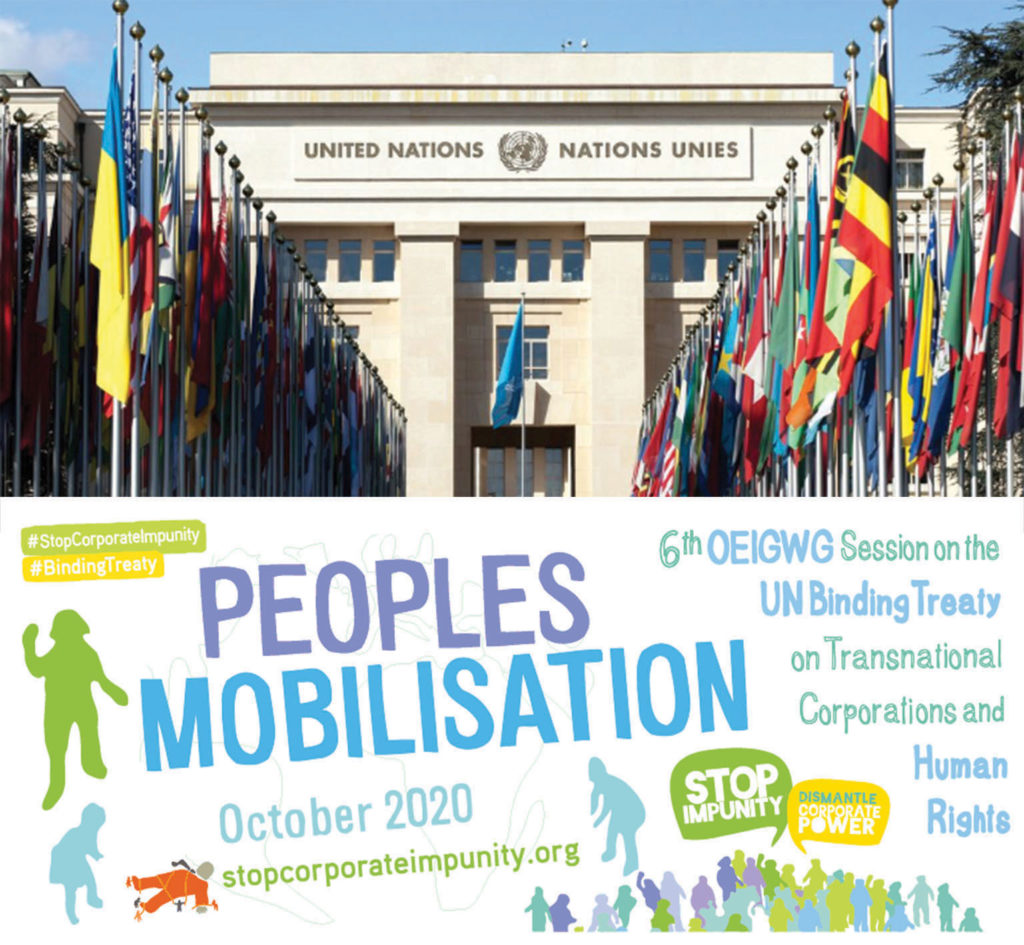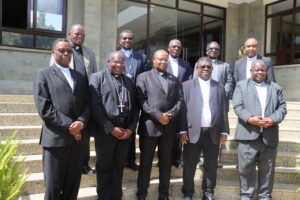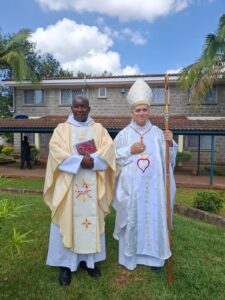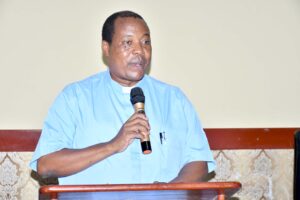KENYA: Bishops Ask Government to Support UN Binding Treaty on Transnational Companies

Sr. Jecinter Antoinette Okoth, FSSA
Days after the United Nations (UN) held its 6th session of negotiations around a binding treaty on Transnational Corporations (TNCs) and other Business Enterprises with respect to Human Rights, the Kenya Conference of Catholic Bishops (KCCB) through its Catholic Justice and Peace Commission (CJPC) has urged government to support the current second revised draft of the Treaty aimed to uphold the right of every person to have effective and equal access to justice and remedy in case of violation of international human rights law.
The second draft of the UN Treaty comes after the Zero Draft published in 2018 and the revised draft published in 2019.
“We reiterate our 2019 commitment to the binding treaty on business and human rights and urge the Kenyan Government to fully support the second revised draft to secure the aspirations of the community,” reads the bishops’ statement signed by the CJPC chairman Bishop John Oballa Owaa.
In the statement dated Wednesday, November 4, the KCCB through her Parliamentary Liaison desk followed the one week deliberations conducted from October 26-30 on the second revised draft and acknowledged that “there is progress and more awareness in regards to the Treaty as compared to last year when we forwarded our submission.”
Bishop Oballa of Kenya’s Ngong Diocese has on behalf of the bishops noted that the ongoing Covid-19 pandemic has not only “exposed the significance of sustainable investment models in public health management but also the inherent vulnerabilities that the global, regional, national and local economies and communities have to grapple with to remain productive.”
The bishops shared their concern that “communities, private and public firms, profit and non-profit organizations, State and non-State actors including faith-based organizations have been engrossed by fear of the calamitous nature of Covid-19 pandemic and its impact on tumbling both aggregate supply and demand,” and that “The traditional means of production and consumption patterns have been disrupted, some beyond repair while others will recover gradually after the adverse effects of Covid-19 dissipate.”
Among other intentions, the second revised draft aims “To facilitate and strengthen mutual legal assistance and international cooperation to prevent human rights abuses in the context of business activities and provide access to justice and effective remedy to victims of such abuses.”
They added, “The capture of public and state interests by the elite through corporate interests should be condemned since it erodes the much-desired fruits of Foreign Direct Investments (FDI) from Transnational Companies (TNCs).”
In their Wednesday statement, the bishops suggest that reinforcement of local transformation through investments be encouraged through “openness, transparency and right to information at all levels.”
Besides, “the contracts of TNCs should be made public and companies with history of human rights violation in other African nations be barred from transacting business in Kenya,” they said.
Lamenting on how some senior actors in the government collude with TNCs the bishops said, “While extracting natural resources from communities in disregard to environmental conservation, the Church leaders recommend, “As good stewards, we have a responsibility to respond and work with all stakeholders to remedy the vagaries that the market expose most vulnerable members of the society to.”
They also “strongly oppose the unending land grabs and displacement of communities without adequate compensation (and that) national government should ensure harmonization of laws that govern land management such as community land in order to safeguard the interest of the poor and the marginalized.”
Additionally, due to climate change challenges that has led to “landslides, floods and sometimes extreme droughts that can be “attributed to some of the transnational companies’ activities which disregard environmental conservation while transacting their businesses,” the Prelates in Kenya suggests that Local authorities, regional and global social movements ought to work in concert towards effectively addressing climate change whose impacts undermines human rights especially of the poor.”
They highlighted Pope Francis’ latest Encyclical Fratelli tutti, about being essential and useful to each other through social friendship, partnership, fraternity and brotherhood, noting that “This is possible by means of breaking the bonds of servitude in the 21st Century and working towards uplifting the quality of human dignity in all its dimensions.”
Besides, “Corporations and other businesses including government entities have a central responsibility to ensure that communities’ interests are prioritized, and free prior and informed consent principle is entrenched in the binding treaty. This will secure communities interests and protect them from manipulation and incitement that leads to conflicts within the community,” they concluded.


